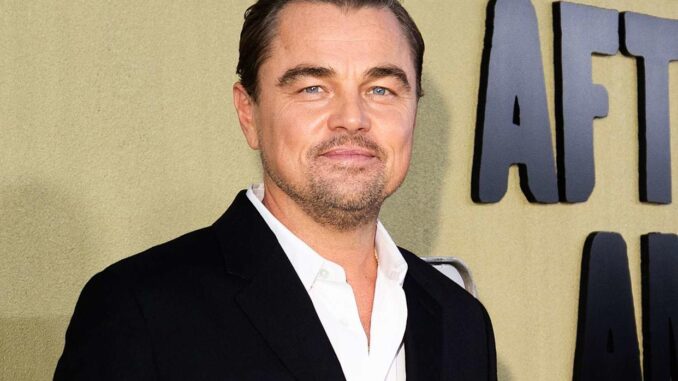
The Measured Cadence of a Titan: Leonardo DiCaprio's Unhurried Ascent to Unmissable
In the frenetic, youth-obsessed churn of Hollywood, where the relentless pursuit of the next project often eclipses the depth of the last, Leonardo DiCaprio stands as an anomaly. A titan who has graced screens since his teenage years, his recent pronouncements on "slowing down" might, at first glance, seem a counterintuitive step for an actor still very much in his prime. Yet, a closer look reveals not a retreat, but a masterful evolution – a deliberate, almost curatorial approach that elevates each chosen role into an event, an unmissable cinematic milestone. DiCaprio is not just slowing down; he is distilling his immense talent, meticulously crafting a legacy defined by profound impact rather than prolific output.
From the raw, untamed brilliance of a young Arnie Grape in What's Eating Gilbert Grape to the heartthrob phenomenon of Jack Dawson, DiCaprio's early career was marked by a fervent, almost desperate energy. He wrestled against the confines of teen idol status, throwing himself into challenging, often dark roles under the tutelage of masters like Martin Scorsese. This period, a relentless ascent, forged his reputation for intensity and commitment. He was everywhere, taking on a formidable array of characters, each a stepping stone in his journey to be recognized as a serious dramatic force. The roles were often excellent, undeniably impactful, but the pace suggested an actor proving himself, burning brightly and fast.
The shift, when it began to coalesce, was subtle but profound. Perhaps it was the sheer, brutal physical and emotional toll of embodying Hugh Glass in The Revenant, a performance that finally secured his elusive Oscar. Or perhaps it was a broader maturation, an understanding that true power lies not in endless motion, but in strategic stillness. DiCaprio himself has hinted at the mental and physical demands, the deep dives into character that leave little room for an immediate pivot to the next. He speaks of needing "recovery time," a luxurious admission in an industry that demands perpetual readiness. This isn't laziness; it's the wisdom of an artisan who understands the finite nature of his most potent tool: his own being.
This measured cadence, however, has not diminished the intensity of his choices; it has sharpened them. When DiCaprio attaches his name to a project, it instantly becomes "unmissable" because the decision itself carries the weight of his now refined judgment. Each role he selects is a meticulously polished facet in the diamond of his career, chosen for its complexity, its social relevance, or its collaboration with a visionary director.
Consider his recent triumphs: Rick Dalton in Once Upon a Time in Hollywood, a fading star wrestling with his own obsolescence, a poignant mirror to the transient nature of fame. Here, DiCaprio didn't just play a character; he channeled the anxieties of an entire era, imbuing Dalton with a vulnerability rarely seen in his more overtly powerful roles. This wasn't a choice for the sake of a paycheque; it was a deeply empathetic portrayal, one that allowed him to explore the quieter, more internal struggles of a man at a crossroads.
Then there was Jordan Belfort in The Wolf of Wall Street, a character as morally reprehensible as he was undeniably charismatic. DiCaprio's performance was a masterclass in controlled chaos, a high-wire act that laid bare the intoxicating allure of greed. It was a role that demanded total immersion, a theatricality that could easily descend into caricature, yet under Scorsese's direction and DiCaprio's command, it became a scathing indictment, a character study that was both repellent and fascinating. These are not roles one simply walks into; they are landscapes an actor must conquer and inhabit, demanding a commitment that only the deliberate pace of "slowing down" can truly afford.
Even his foray into climate change commentary with Don't Look Up, a darkly satirical take on humanity's inaction, speaks to this evolving selectivity. Here, the "unmissable" quality stems not just from the performance itself, but from the actor's profound personal investment in the film's message. It was a choice that transcended mere acting, becoming an extension of his long-standing environmental activism, using his platform to ignite dialogue.
Leonardo DiCaprio's "slowing down" is not a sign of fading ambition; it is the ultimate expression of it. It’s the meticulous work of a seasoned craftsman who knows the value of each strike, each cut. By choosing fewer roles, he imbues each with an elevated significance, creating anticipation that crackles before the film even reaches the screen. He is not merely starring in movies; he is curating his own legacy, ensuring that every character he embodies, every story he tells, resonates with the weight of conscious choice. In a world clamoring for more, DiCaprio offers less, but in that less, he delivers everything that truly matters: depth, impact, and a cinematic experience that is, quite simply, unmissable.